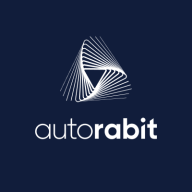

SonarQube Cloud and CodeScan Static Code Analysis compete in the static code analysis category, with SonarQube Cloud having an advantage in terms of pricing and support, while CodeScan offers more value through its specialized features.
Features: SonarQube Cloud provides broad language support, advanced issue tracking, and extensive community integrations. CodeScan offers deep Salesforce platform integration, comprehensive code quality insights, and specialized rules for Salesforce development.
Ease of Deployment and Customer Service: CodeScan provides a streamlined deployment experience and robust customer service tailored to Salesforce environments. SonarQube Cloud supports cloud-based deployment and benefits from extensive community support, offering flexibility for various development environments.
Pricing and ROI: SonarQube Cloud has a straightforward pricing structure with a lower upfront cost, appealing to diverse development teams seeking broad applicability. In contrast, CodeScan reflects its specialized focus with a higher initial cost, catering to organizations centered on Salesforce operations, which can result in higher ROI for specific investments.

CodeScan Static Code Analysis is a powerful tool designed to improve software development processes, enhance code quality, detect vulnerabilities and bugs, and ensure compliance with coding standards.
With accurate bug detection, efficient performance, helpful code suggestions, and reliable security checks, it is a valuable asset for reducing technical debt and maintaining consistent code quality.
The seamless integration with various IDEs and comprehensive reporting capabilities make it a must-have for any development team.
SonarQube Cloud offers static code analysis and application security testing, seamlessly integrating into CI/CD pipelines. It's a vital tool for identifying vulnerabilities and ensuring code quality before deployment.
SonarQube Cloud is widely used for its ability to integrate with tools like GitHub, Jenkins, and Bitbucket, providing critical feedback at the pull request level. It's designed to help organizations maintain clean code by acting as a quality gate. This service supports development methodologies including sprints and Kanban for ongoing vulnerability management. While appreciated for its dashboard and integration capabilities, some users find initial setup challenging and note the need for enhanced documentation. The recent addition of mono reports and microservices support offers deeper insights into security and code quality, though container testing limitations and false positives are noted drawbacks. Manual intervention is sometimes required to address detailed reporting, with external tools being necessary for comprehensive analysis. Notifications for larger teams during serious issues and streamlined integration of new features are also areas of improvement.
What are the key features of SonarQube Cloud?In specific industries, SonarQube Cloud finds application in finance and healthcare where code integrity and security are paramount. It allows teams to identify critical vulnerabilities early and ensures that software development aligns with industry regulations and standards. By continuously analyzing code, it aids organizations in deploying secure and reliable applications, fostering trust and compliance.
We monitor all Static Application Security Testing (SAST) reviews to prevent fraudulent reviews and keep review quality high. We do not post reviews by company employees or direct competitors. We validate each review for authenticity via cross-reference with LinkedIn, and personal follow-up with the reviewer when necessary.